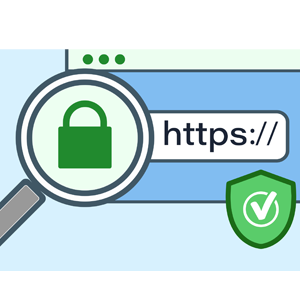Understanding security certificates
Our security certificate automation toolkit can help you understand SSL (Secure Sockets Layer) certificates are digital certificates.
SSL (Secure Sockets Layer) certificates are digital certificates that establish secure encrypted connections between web servers and web browsers.
Overview of SSL certificates and their benefits
SSL certificates are essential to ensure the security and integrity of online communications. By encrypting data, authenticating websites, and demonstrating compliance with industry standards, SSL certificates protect sensitive data and build trust with users.

Encryption of data
SSL certificates encrypt data transmitted between a web server and a web browser. This encryption scrambles the data, making it unreadable to anyone intercepting the communication. It protects sensitive information such as login credentials, payment details, and personal data against eavesdropping and data theft.
Authentication of websites
SSL certificates also serve as digital credentials that verify the identity of a website or online service. When a user visits a website secured with SSL, their browser checks the SSL certificate to ensure that the website is authentic and belongs to the entity it claims to represent. This authentication process helps prevent phishing attacks and ensures users are interacting with legitimate websites.
Trust and confidence
Websites secured with SSL certificates show users that the connection is secure using visual indicators such as a padlock icon or "https://" in the URL. These visual cues instil trust and confidence, reassuring users that their data is safe and creating a positive user experience. Without these certificates, users may choose not to share sensitive information or engage with the website.
Compliance with industry standards
SSL certificates are often required to follow industry regulations and standards, such as the Payment Card Industry Data Security Standard (PCI DSS) and the General Data Protection Regulation (GDPR). By implementing SSL certificates, you can show your commitment to data security and compliance with regulatory requirements. Failure to follow these standards can result in fines, legal penalties, and reputational damage.
Protection against security threats
SSL certificates play a crucial role in protecting against various security threats, including man-in-the-middle attacks, data breaches, and session hijacking. By encrypting data and verifying the authenticity of websites, SSL certificates help mitigate the risk of unauthorized access to sensitive information and ensure the confidentiality of online transactions
Next section: Future-proofing certificate management
Automation has become indispensable for efficient and effective certificate management.